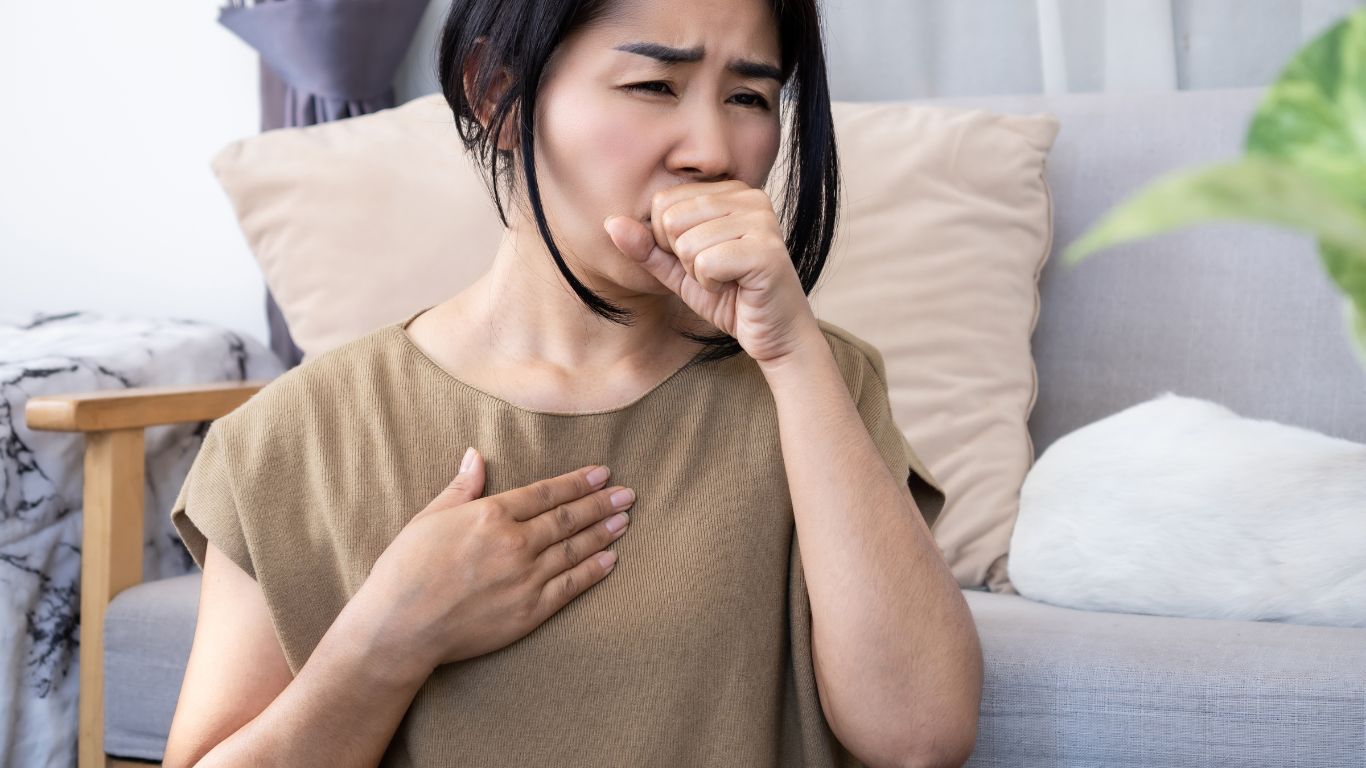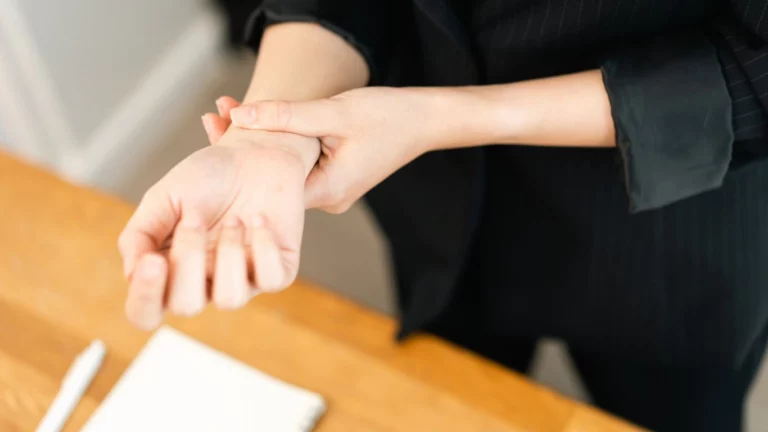How GERD Wrecks Your Teeth: The Hidden Dental Damage You Need to Stop
Did you know that your acid reflux might be quietly wrecking your teeth? Most people think of GERD (Gastroesophageal Reflux Disease) as just heartburn or an upset stomach, but there’s a hidden side effect many overlook—its impact on dental health. As someone who’s worked with countless GERD patients, I’ve seen firsthand how this condition wreaks havoc on oral health, and let me tell you, it’s not pretty. If you’ve been dealing with unexplained cavities, sensitive teeth, or chronic bad breath, your reflux might be the real culprit.
How GERD Impacts Dental Health

Acid reflux doesn’t just stop at your chest—it can make its way up to your mouth, and that’s where the real trouble starts. The acid from your stomach is incredibly strong (we’re talking battery acid levels of corrosiveness!), and when it comes into contact with your teeth, it slowly eats away at the enamel. Unlike other parts of the body, enamel doesn’t regenerate, so once it’s gone, it’s gone for good.
Enamel Erosion: The Silent Destroyer
I can’t tell you how many patients have come to me complaining about sudden tooth sensitivity, not realizing their GERD was to blame. Over time, acid exposure weakens the enamel, leading to:
- Increased tooth sensitivity—especially to hot, cold, or sweet foods.
- Yellowing teeth as the enamel thins and exposes the darker dentin layer.
- Chipped or weakened teeth that are more prone to fractures.
One patient, let’s call him Mark, was in his early 40s and brushed his teeth religiously. Yet, his dentist kept finding cavities in places he never had issues before. Turns out, his nighttime acid reflux was coating his teeth in stomach acid, wearing them down little by little.
Dry Mouth: A Recipe for Bacteria Overgrowth
GERD doesn’t just bathe your teeth in acid—it also messes with your saliva production. Saliva plays a huge role in washing away food particles and neutralizing acids. But when reflux disrupts this balance, you’re left with dry mouth, which can lead to:
- More cavities—less saliva means bacteria thrive and produce more acid.
- Bad breath—stagnant bacteria create an unpleasant odor.
- Gum disease—without enough saliva, gums become more vulnerable to infection.
Imagine going all night with acid lingering on your teeth and no saliva to wash it away—it’s a perfect storm for dental damage.
Signs Your GERD Is Affecting Your Teeth

Not sure if GERD is messing with your oral health? Here are some telltale signs:
- Tooth sensitivity that seems to be getting worse over time.
- Unexplained cavities, even with good oral hygiene.
- Chronic bad breath that won’t go away, no matter how much you brush.
- Waking up with a bitter or acidic taste in your mouth.
- Thin or translucent-looking teeth, especially near the edges.
If any of these sound familiar, it’s time to take your GERD seriously—not just for your stomach’s sake, but for your smile too.
Case Studies & Real-Life Examples

Nothing brings awareness like real-life stories. Over the years, I’ve seen many GERD patients struggle with their dental health, often unaware of the damage until it’s too late. Let’s look at a couple of cases that highlight just how serious this issue can be.
Case Study 1: The Nighttime Refluxer
Lisa, a 38-year-old teacher, came to me frustrated about her recurring cavities despite brushing twice a day and flossing religiously. Her dentist noticed severe enamel erosion on her back teeth, a classic sign of acid exposure. After some discussion, we discovered that she had been dealing with nighttime acid reflux for years—something she dismissed as “just a little heartburn.” Once she started managing her GERD with lifestyle changes and proper medication, her dental issues improved significantly.
Case Study 2: The Fitness Enthusiast
Mark, a 42-year-old personal trainer, had no idea his intense workout routine was aggravating his GERD. His dentist noticed unusual wear on his front teeth and chronic dry mouth. It turned out that his frequent consumption of acidic sports drinks combined with post-workout reflux episodes was putting his oral health in jeopardy. By adjusting his diet, switching to a high-pH water for hydration, and timing his meals better, he was able to save his teeth from further erosion.
Key Takeaways: What You Need to Remember
If there’s one thing I want you to take away from this, it’s that GERD is more than just digestive discomfort—it’s a threat to your oral health. Here’s a quick recap:
- Acid reflux erodes enamel, making teeth more sensitive and prone to decay.
- Saliva is your natural defense, but GERD can reduce it, leading to dry mouth and bacterial overgrowth.
- Unexplained dental problems? GERD might be the hidden culprit.
- Managing GERD effectively can protect both your gut and your teeth.
Now that you know how GERD impacts dental health, it’s time to take action before the damage becomes irreversible.
FAQs
Still have questions? You’re not alone! Here are some of the most common ones I get from GERD patients.
Can GERD damage my teeth permanently?
Unfortunately, yes. Enamel doesn’t grow back once it’s worn down. However, you can slow or stop the damage by controlling your acid reflux and working closely with your dentist.
What’s the best toothpaste for GERD sufferers?
Look for fluoride-based, low-abrasion toothpaste designed for sensitive teeth. Avoid whitening formulas, as they can be too harsh on weakened enamel.
Does chewing gum help with GERD and dental health?
Yes! Sugar-free gum stimulates saliva production, which helps neutralize acid. Opt for xylitol gum, as it also helps fight cavity-causing bacteria.
How can I prevent nighttime acid reflux from damaging my teeth?
Try sleeping with your head elevated, avoid eating at least three hours before bed, and rinse your mouth with water or a fluoride mouthwash before sleeping.
Bonus: Additional Resources or DIY Tips
Want to take control of your GERD and protect your teeth? Here are some extra tips:
- Rinse with baking soda water after meals to neutralize acid.
- Drink alkaline water to reduce acidity in your mouth.
- Avoid brushing right after a reflux episode—wait at least 30 minutes to prevent spreading acid deeper into your enamel.
- Eat more alkaline foods like leafy greens, bananas, and oatmeal to help balance your body’s pH.
Appendix: References, Disclaimer & Call to Action
For those who love deep diving into research, here are some trusted sources to learn more:
- American Dental Association (ADA) – Information on acid erosion and enamel protection.
- National Institutes of Health (NIH) – Scientific studies on GERD and oral health.
- Mayo Clinic – GERD symptoms, diagnosis, and treatment options.
Disclaimer: This article is for informational purposes only and does not replace professional medical or dental advice. Always consult a healthcare provider for personalized recommendations.
💬 Over to you! Have you noticed dental issues linked to your acid reflux? Share your experiences in the comments below! And if you found this helpful, don’t forget to share it with others who might need it.
#LNF

Camellia Wulansari is a dedicated Medical Assistant at a local clinic and a passionate health writer at Healthusias.com. With years of hands-on experience in patient care and a deep interest in preventive medicine, she bridges the gap between clinical knowledge and accessible health information. Camellia specializes in writing about digestive health, chronic conditions like GERD and hypertension, respiratory issues, and autoimmune diseases, aiming to empower readers with practical, easy-to-understand insights. When she’s not assisting patients or writing, you’ll find her enjoying quiet mornings with coffee and a medical journal in hand—or jamming to her favorite metal band, Lamb of God.







